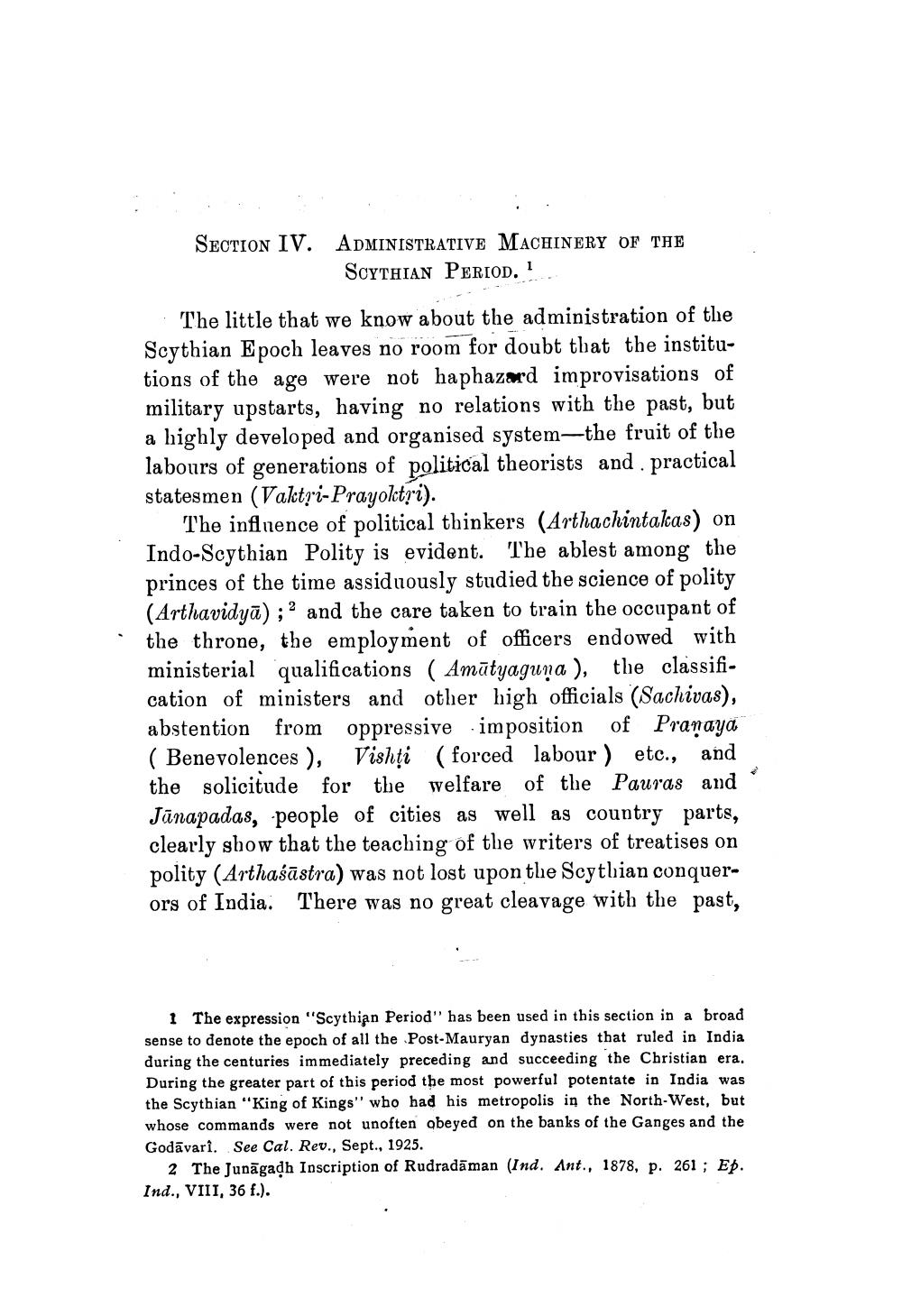________________
SECTION IV. ADMINISTRATIVE MACHINERY OF THE
SCYTHIAN PERIOD.!
The little that we know about the administration of the Scythian Epoch leaves no room for doubt that the institutions of the age were not haphazard improvisations of military upstarts, having no relations with the past, but a highly developed and organised system—the fruit of the labours of generations of political theorists and practical statesmen (Vaktri-Prayoktri).
The influence of political thinkers (Arthachintakas) on Indo-Scythian Polity is evident. The ablest among the princes of the time assiduously studied the science of polity (Arthavidyā); 2 and the care taken to train the occupant of the throne, the employment of officers endowed with ministerial qualifications ( Amūtyaguna), the classification of ministers and other high officials (Sachivas), abstention from oppressive imposition of Pranaya ( Benevolences ), Vishți (forced labour ) etc., and the solicitude for the welfare of the Pauras and Jānapadas, people of cities as well as country parts, clearly show that the teaching of the writers of treatises on polity (Arthaśāstra) was not lost upon the Scythian conquerors of India. There was no great cleavage with the past,
1 The expression "Scythian Period" has been used in this section in a broad sense to denote the epoch of all the Post-Mauryan dynasties that ruled in India during the centuries immediately preceding and succeeding the Christian era. During the greater part of this period the most powerful potentate in India was the Scythian "King of Kings" who had his metropolis in the North-West, but whose commands were not unoften abeyed on the banks of the Ganges and the Godāvari. See Cal. Rev., Sept., 1925.
2 The Junāgadh Inscription of Rudradāman (Ind. Ant., 1878, p. 261 ; Ep. Ind., VIII, 36 f.).




